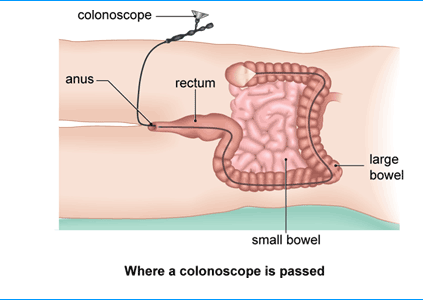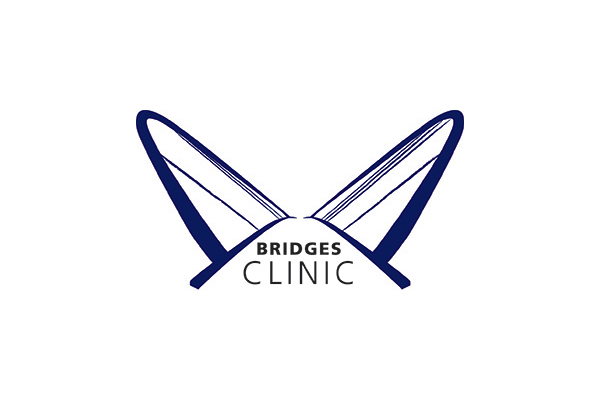A colonoscopy is a test that uses a narrow, flexible, telescopic camera called a colonoscope to look at the lining of your large bowel.
A colonoscopy can be used to detect irritated and swollen tissue, ulcers, or growths such as polyps. It helps to diagnose health conditions like Crohn’s disease, ulcerative colitis, diverticular disease and bowel cancer.
You’ll have a colonoscopy because you have bowel symptoms that need investigating. Using the colonoscope is a good way to do this because the camera can see directly any irritated tissue or growths in the lining of your large bowel.
Your large bowel is the last part of your digestive system, and consists of your bowel and rectum. Your rectum connects your bowel to your anus. The illustration below shows where a colonoscope is passed.

Preparing for a colonoscopy
You’ll have a colonoscopy usually as a day case. This means you have the test and go home the same day. We will give you some instructions on how to prepare for your colonoscopy, our Endoscopy Suite has JAG accreditation, Joint Advisory Group on Gastrointestinal Endoscopy (JAG), which is part of the Royal College of Physicians.
To enable your consultant to see everything clearly, your bowel will need to be completely empty for the procedure. We will give you a strong laxatives that you’ll need to take the day or evening before your colonoscopy – but check the instructions. The laxative usually comes as a powder that you mix with water.
The laxative will give you diarrhoea, so make sure you stay close to a toilet after you take it. Drink plenty of clear fluids like water, squash or black tea or coffee to make sure you don’t get dehydrated. You might feel some discomfort or bloating in your tummy (abdomen) when you take a laxative, and it can taste unpleasant. It might taste better if you put the mixture in the fridge before you drink it. Remember that although taking a laxative isn’t very nice, it’s really important for the test to go well.
Before you have a colonoscopy you’ll also need to:
- eat a low-fibre diet for a couple of days before the procedure, and then switch to only clear fluids the day before
- if you take iron tablets, stop the week before your colonoscopy because they make the inside of your bowel black; this makes it difficult to see clearly
- stop taking any medicines that affect the way your blood clots (e.g. warfarin, aspirin or clopidogrel) as well as painkillers such as ibuprofen
If you take any of these medicines (or any others), let us know before you have the colonoscopy and we can check if you need to stop taking them, and for how long. If you have a health condition, such as diabetes, let us know as the preparation might be different for you, we will give you all the information you need.
Your consultant will already have gone through everything in detail before you get to the point where you go to hospital for your colonoscopy. They’ll also have given you the opportunity to ask questions about the risks, benefits and alternatives to the procedure. You’ll be asked to sign a consent form beforehand.
